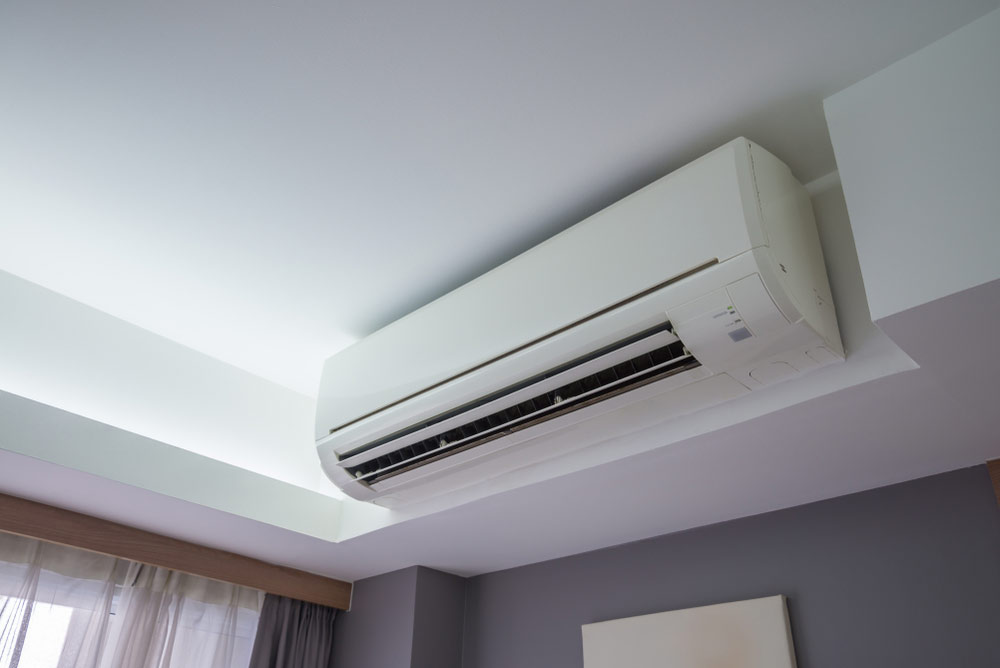Have you ever wondered why walking into a room with air conditioning feels so refreshing, especially when it’s hot and humid outside? Beyond cooling, air conditioning helps create a healthier and more comfortable living environment. Let’s explore how air conditioning is essential for controlling indoor humidity levels and reducing allergy symptoms, making your home a place to escape the heat and also protecting you from allergens.
Can Air Conditioning Reduce Humidity In A Room?
Air conditioning systems are designed to cool your home and also to remove excess moisture from the air. This is crucial because high humidity levels can make the air feel warmer than it is, leading to discomfort and various health issues.
The Science Behind It
Air conditioners function by pulling in warm air, cooling it using a refrigeration cycle and then circulating it back into the room. During this process, they also extract moisture from the air, which is collected and drained away, thereby reducing humidity levels effectively.
Why It Matters
Lower humidity levels mean a more comfortable living environment and less risk of mould and mildew growth, which are common in damp areas.
Protecting Health: The Impact Of Humidity On Mould Growth And Well-being
Humidity plays a significant role in creating environments conducive to mould growth, which can have various adverse effects on human health. Understanding the link between humidity, mould and health is crucial for maintaining a healthy indoor environment.
Ideal Conditions For Mould
Mould thrives in moist, warm conditions, typically in environments with humidity levels above 60%. High indoor humidity provides the perfect breeding ground for mould spores to settle and grow.
Health Risks Associated With Mould
Mould exposure can lead to a range of health issues, particularly for individuals with allergies, asthma or compromised immune systems. The effects on health include:
- Respiratory Problems: Inhalation of mould spores can cause symptoms such as coughing, sneezing and, in severe cases, asthma attacks.
- Allergic Reactions: Mould can trigger allergic responses, including a runny nose, red eyes and skin rash. People with mould allergies may experience more severe reactions.
- Immune System Impact: For those with weakened immune systems, mould exposure can lead to more serious infections.
Prevention Strategies
Controlling indoor humidity is key to preventing mould growth. Use of dehumidifiers, proper ventilation and fixing leaks promptly can significantly reduce humidity levels, making your home less hospitable to mould.
How Clean Air Conditioning Systems Fight Against Allergens
A well-maintained air conditioning system can filter out pollen, dust and other airborne allergens, improving indoor air quality.
Importance Of Regular Maintenance
Clean filters and coils are essential for the efficient operation of your air conditioner, ensuring that it effectively removes allergens from the air.
Advanced Filtration Systems
Some air conditioners come equipped with HEPA filters or other advanced filtration technologies, offering even greater protection against allergens.
Choosing The Right Air Conditioning System For Allergy And Humidity Control
Selecting an air conditioning system that allows for easy temperature adjustments can be a game-changer for those sensitive to humidity and allergies. It’s important to choose a unit that matches your space requirements and has a good energy efficiency rating.
Enhancing Home Comfort: The Benefits Of Air Conditioning On Indoor Humidity
Air conditioning systems have a significant impact on indoor humidity levels, offering a range of positive effects that enhance the comfort of home environments. Here are the key benefits:
- Lowers Humidity: It reduces the moisture in the air, making homes more comfortable and less muggy.
- Prevents Mould: By keeping humidity low, it inhibits mould and mildew growth, protecting health and home structures.
- Improves Air Quality: Reduced humidity levels decrease dust mites and allergens, while filters in AC units help purify the air.
- Protects Valuables: It prevents damage to electronics and furniture by controlling moisture.
- Enhances Comfort: Lower humidity levels make the indoor climate feel cooler and more pleasant.
- Health Benefits: Reduces allergens and improves conditions for those with respiratory issues.
- Saves Energy: Modern AC units offer efficient humidity control, leading to potential savings on energy bills.
Quick Response And Efficient Installation: The Key To Better Air Quality
Choosing a reliable service provider for the installation and maintenance of your air conditioning system is crucial for ensuring optimal air quality in your home.
Expert Installation
A professional installation ensures that your air conditioning system is set up correctly, maximising its efficiency and effectiveness in controlling humidity and allergens.
Rapid Response to Enquiries
A service provider who responds quickly to service requests can help maintain your system in peak condition, preventing issues that could impact air quality.
Choose Us For Your Air Conditioning Solutions
At Oceanside Services, we prioritise your comfort with air conditioning solutions that reduce humidity and allergens, enhancing well-being. Our expertise lies in installing systems for easy temperature control—allowing you to eliminate migraines, fatigue, loss of concentration and other negative factors resulting from humidity. We also offer thorough air conditioning cleaning services on the Gold Coast to eliminate fungi, allergens and airborne diseases for a healthier environment. Our quick response to enquiries ensures you receive timely and effective service. Get in touch with us to create a fresher, cleaner and more comfortable living space.



 5 Star Service
5 Star Service 




